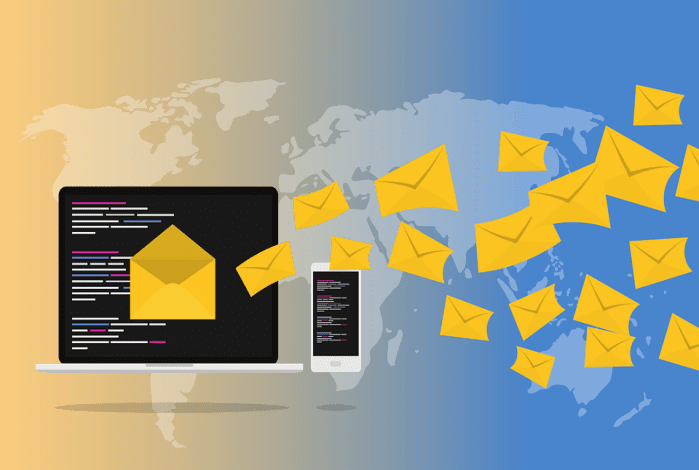A hacking, or computer attack, is any attempt at illegal activity using computer technology or a computer network. These attacks are often publicised in the media and, especially in recent years, there has been talk of a new form of warfare.
Computer attacks can take different forms and have different targets. In some cases, the goal is to steal as much data as possible from ordinary people. Sometimes, on the other hand, hackers try to attack specific websites or companies. Although there are many types of attacks on the Internet, we have selected the most common ones:
- Malware or XSS attack
- Drive-by attacks
- Logic bombs
- DDoS attacks
- Botnet attacks
- Phishing attacks
Malware is the most common type of cyberattack
Malware refers to malicious programs, such as viruses or Trojans, that can compromise the functioning of your computer. Malware spreads in many ways, such as phishing, where cybercriminals trick you into clicking on a link in a fake email to steal your login credentials or other confidential information. Trojans and worms can also spread via unintentional downloads, such as attachments in emails.
XSS attacks use third-party web resources to introduce a hidden threat into a victim’s computer. They can be done through malicious scripts published in the comments section of a website. Once installed, the malicious scripts can infect the victim’s computer, steal their cookies, and extract their credentials. They can also redirect them to a malicious website. Once inside, the malware will execute an attack to obtain the user’s personal information.
Drive-by attacks
A drive-by attack is a hacking process that involves installing malware through a web page that contains a malicious script. These attacks can occur on any operating system or user device. They usually occur when users navigate to a compromised web page. To prevent this kind of attack, users should remove unnecessary browser plug-ins and use privacy/security-focused web browsers. They should also avoid using privileged user accounts to access the Internet.
Some of the most common types of hacker attacks are described below: IP spoofing: this type of attack uses a stolen IP address to trick the system into thinking that the attacker is the real person. The results of this type of attack are compromised information security. Another type of cyber attack is the replay attack, in which attackers intercept messages between a client and a server, and then resend them to a trusted third party. Fortunately, a countermeasure to this type of attack is the use of timestamps and checksums.
Logic bombs
Logic bombs are a type of hacker attack where malicious software is programmed to be run when certain conditions are met by the user. These conditions can be as simple as a certain time and date, opening a certain file, or even switching on the computer. Logic bombs can then release malicious files, install malware, or even erase the entire system. It is important to protect your computer from logic bombs, but it is not always easy to do. To prevent them, you should use antivirus software with a logic bomb detection feature.
Logic bombs are typically undetected for years. Once activated, they cause damage by executing a specific set of codes. The trigger for these attacks is typically some event, such as the deletion of an employee from payroll or the date of an important event. Logic bombs can remain undetected for many years until they are triggered. You can detect logic bombs by installing legitimate antivirus software, such as Avast One.
DDoS attacks
DDoS (Denial-of-service) attacks are cyber criminals’ most common means of disrupting a website. They can occur at any time and can result in severe financial losses for the website’s operators. Earlier, DDoS attacks were mostly used as a form of mischief, but they are now increasingly being used for money-making and political purposes. As a result, you must be very careful when using public Wi-Fi networks.
A DDoS attack is a cybercrime that causes a computer network or machine to crash. The perpetrators use a network of remotely controlled computers known as botnets. The botnets may consist of thousands to millions of computers connected. They can be used to send spam and other forms of malware or to steal sensitive information. DDoS attacks are typically targeted at high-profile organizations such as government websites, online casinos, educational institutions, hospitals or technology companies. Ddos attacks are also complemented by extortion. Hackers try to get ransom money for terminated attacks on websites.
Botnet attacks
Several types of botnets are commonly used by cybercriminals to execute hacking operations. These bots are usually a collection of compromised devices that were recruited by hackers and whose purpose was to access a targeted website and capture information. As a result, the site’s website became unavailable to legitimate users, making it virtually unusable.
Account takeover attacks are the most common and most harmful cyber threat for online businesses. Hackers use botnets to test stolen credentials. Hence, it’s important to monitor the number of failed login attempts and set up warnings when they spike. However, a low number of simultaneous attacks or a single attack may not trigger an alert for a botnet attack. Moreover, many botnet attacks are low-profile and come from single IP addresses. Therefore, it’s advisable to monitor incoming IP addresses to avoid the onset of a botnet attack.
Phishing attacks
A phishing attack is a form of fraud in which a hacker sends you an email that looks like it’s from a reputable organization. This email will contain a malicious link or attachment that will trick you into giving out valuable information. Phishing campaigns are relatively easy to launch and can be very effective. In addition, these attacks can be very damaging to your computer. If you receive a phishing email, you should never click on it.
Spear phishing attacks are more sophisticated than email phishing attacks. The attackers behind spear phishing attacks do extensive research on their target and create emails that seem relevant and personal to them. They can trick victims into thinking that they are receiving a legitimate email because they can forge the “from” section of the email. Spear phishing attacks also use website cloning to copy legitimate websites and trick their victims into providing personal information.
In conclusion
This is by no means a complete list of all the possible attacks you may encounter in an online environment. While it may seem like you can’t avoid such attacks now, the reality is that you just need to follow basic security principles:
- Choose secure passwords
- Watch out for online payments
- Use a secure network
- Use antivirus
- Don’t download unknown files
- Do not open unknown emails
While these may seem like very basic tips that almost everyone knows, in reality, many people don’t follow them. And it’s by following these simple princes that you rapidly reduce the likelihood of falling victim to an internet attack.








